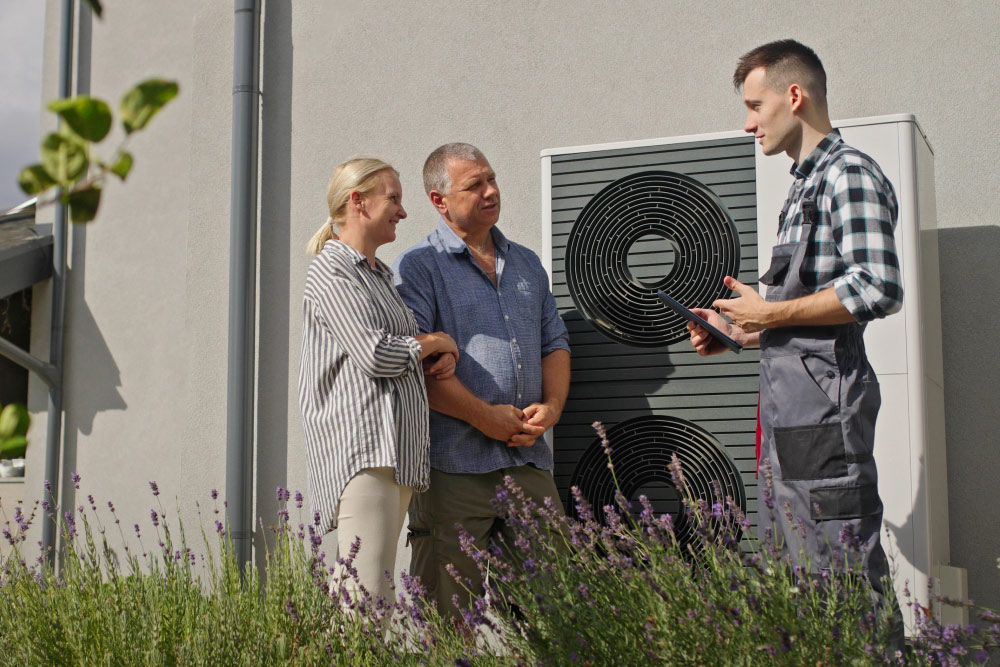Cost of Heat Pumps – Key Details and Ways to Save Money
If looking for energy-efficient heating and cooling alternatives to traditional HVAC systems , businesses and homes can consider heat pumps . These devices extract warmth from the water, ground, and air and bring it to spaces that need to be warmer. Similarly, they can also make spaces cooler by driving away the heat. That said, if considering investing in this system, one must know the costs, which vary depending on the technology and type of heat pump.
Cost of heat pumps
Heat pumps use energy from the ambient air, water, or ground as the main heating source. So, if wondering how much heat pumps cost, one must know that the source of heat they rely on can determine their price.

Cost of air-to-water heat pumps
Purchasing and installing air-source heat pumps is often cheaper than other variants. Typically, the cost can start from around 27,000€ and go over 40,000€. The price range usually depends on the specific requirements of the house or business. These requirements could be the intended use of the heat pump and the overall energy consumption of the residential or office space.
Costs for brine-to-water or water-to-water heat pumps
These high-temperature heat pumps are typically more expensive than air-source heat pumps. Most of them are geothermal heat pumps and groundwater heat pumps, which have a higher installation cost. This is because when determining the cost, the provider will consider the type of soil and subsoil at the installation site. These generally cost between 40,000€ and 50,000€.
Operating costs
When considering heat pump costs, it is important to take into account the operating cost. For example, in a single-family household, the consumption of electricity can be anywhere between 4,000 kWh and 6,000 kWh. Depending on the cost of electricity, the annual consumption of electricity can be over 2,500€. However, if the household chooses a cheaper electricity tariff for the heat pump, they would save nearly 20–25% of the standard electricity costs. This means a family of four can save almost 300€ in electricity costs annually.
In order to calculate the operating cost of a heat pump, one must first find out how much electricity the device consumes. For this, one must determine the coefficient of performance (COP or SCOP/COP). It is generally observed that heat pumps with higher COP tend to be more economical in terms of their operation costs, as more heat is generated from electricity in this case, lowering the cost of heating.
Ways to save money on heat pumps
1. Utilise state subsidies
The federal government provides funding for efficient buildings. So , here , state subsidies can be availed to install and use heat pumps. Households and businesses can take advantage of a nearly 40% subsidy for heat pumps. To be eligible for the subsidies, it is essential that the heat pump installed has a standard minimum efficiency value. Other technical factors, such as hydraulic balancing and the installation of a heat quantity meter and electricity meter, must also be considered while applying for a subsidy. Besides this, additional subsidies can be availed when a heat pump is installed through alternative energy generators like solar thermal.
Subsidies can also be offered to homeowners who have renovated old buildings to increase their energy efficiency and have used a heating system with heat pumps for a minimum of two years. In order to receive these subsidies, it is important to submit the application before hiring a professional or bringing in a provider for the pump installation.
Certain subsidies can be easy to access if all the eligibility criteria are met and the application is sent successfully.
- Around 25% subsidy is available on the purchase of a new heat pump.
- Around 35% subsidy is available when a new heat pump is bought in exchange for an old oil heating system.
- Around 35% subsidy is available when a heat pump is purchased in exchange for an old gas heating system that is over 20 years old.
- An additional 5% subsidy is available in cases where the device is a brine-water or water-water heat pump or one that uses a natural refrigerant.
- About 35% subsidy is available on air-source heat pumps.
2. Prioritise regular maintenance
In addition to reducing purchase and operating costs, one must consider maintenance costs when considering buying heat pumps. To ensure that the heat pumps continue to work optimally and efficiently for several years , it is crucial to spend time on regular maintenance. For this, one can rely on service providers that offer comprehensive packages that include everything from routine checks to detailed heat pump servicing. A well-maintained system will not only run smoothly but also help one save money on repairs, energy consumption, and replacement of parts.

